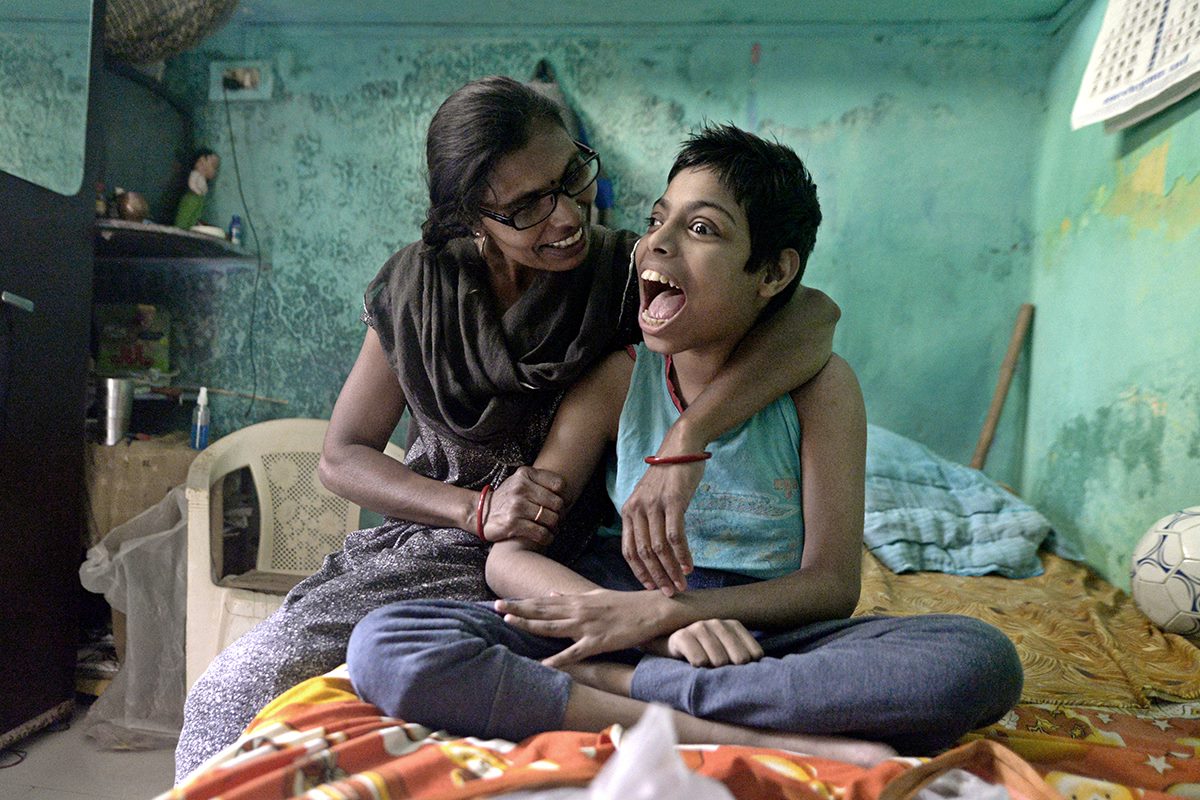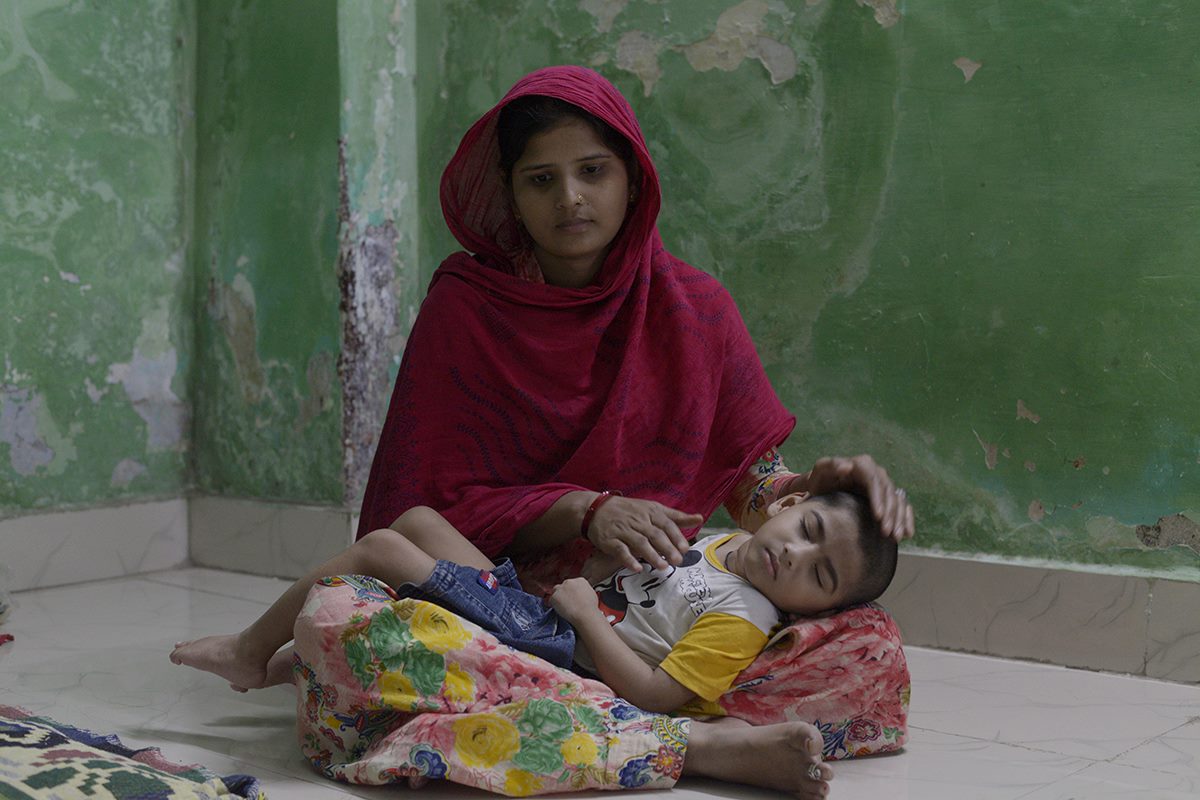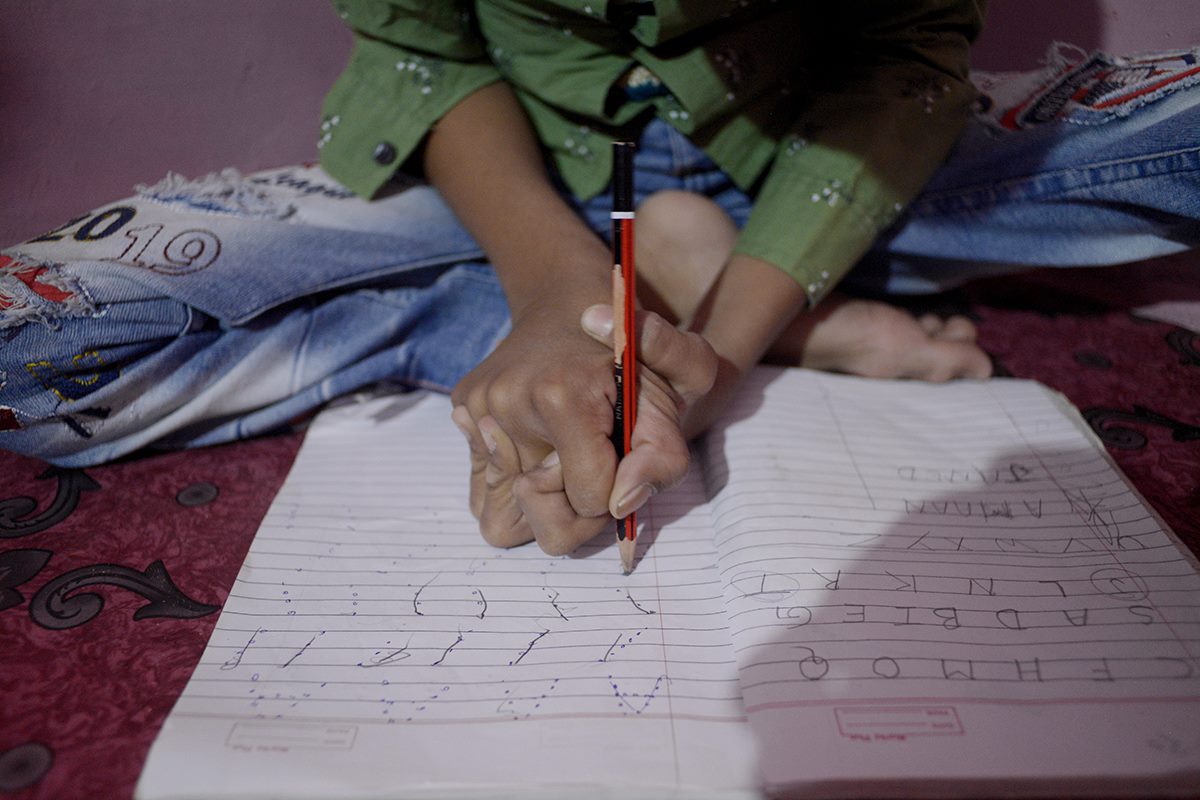This is the second instalment in our series of photographs and stories about Bhopali children by photographer and author Rohit Jain. This week we have the stories of Manisha, Azaan and Amaan, all of whom receive regular treatment at the Chingari clinic. Rohit visited them during lockdown to speak with them and their carers about their experiences. Again, a big thank you to Rohit for sharing these amazing pictures and moving stories with us.
All photographs by Rohit Jain.
Manisha

Thirteen-year-old Manisha Ahirwar’s mother had tears in her eyes as she spoke with me about her daughter, but only moments later she was once again laughing with Manisha. That’s how the parents of children live, with varied emotions, given their ever-changing circumstances. Their pain and happiness are hidden inside the by-lanes and small houses of old Bhopal, where you will find many children who are affected by the long-term effect of Bhopal Gas Tragedy of 1984. It seems that the gas tragedy wasn’t enough warning for Union Carbide and the Indian government, as they remain seemingly indifferent about a secret second disaster from the factory: the toxic waste from the factory site had been piped into three huge ‘solar evaporation ponds’ and are slowly leaking into the soil and the groundwater. This poisoned groundwater is what families were pumping out every day to wash with, to cook with and to drink.
Manisha suffers from cerebral palsy. Her parents had drunk contaminated groundwater for eight years before Manisha was born.
Manisha’s parents had to shell out all of their savings – three lakh rupees (USD 4,000) – at various hospitals in various cities to treat Manisha, Manisha’s mother Manju told me.
Manisha’s father works as a daily wage labourer. He has an average monthly income of Rs 8,000 (USD 110). By the end of the month, they are in often in debt. Their house rent is Rs 3,000 (USD 40).
Manju told me “money doesn’t mean anything for us but we want our daughter to be well’.
Regular therapies are the best medical care for Manisha. However, due to the Covid-19 lockdown Manisha has not been able to have regular therapy, only a weekly home visit by a therapist from the Chingari Rehabilitation Centre. Before Covid, Manisha was able to perform basic activities like eating food and wearing clothes by herself. Now, she is completely dependant on her parents and siblings.
During the Covid-19 lockdown she was literally locked inside a room, as her landlady didn’t allow her parents to take her for a walk and do her required exercises. Apart from that, the landlady and her family become annoyed if Manisha shrieks in irritation. Her parents had to keep her inside a single room to avoid the anger of their landlady. It is a difficult situation but they are unable to find another place to live. Some people consider children with such medical conditions untouchables, and keep their distance.
Manisha requires regular therapies: physical, speech and occupationl, as well as special education. This morning, she had an accident when she couldn’t control her bladder. She wasn’t like this before Covid.
Manisha is loved by everyone in her family, including her two siblings. She laughs a lot and plays with everyone in her family. Her father is very emotional when he speaks about Manisha. She is very close to him.
Azaan

Three-year-old Azaan is sleeping in his mother’s lap. He suffers from regular seizures, mostly when he sleeps. He has cerebral palsy.
His grandparents were exposed to poisonous gas during the Bhopal Gas disaster. Azaan is one of many children in the neighbourhoods around the factory who are still being born with medical conditions.
Azaan was playing and giving us all a big laugh. After a while he slept, but had frequent seizures. He awoke and was frightened. His grandmother hugged him, and his mother took him in her lap and caressed his head.
The frequency of his seizures has increased in the last six months, probably because he has been unable to receive his regular therapy due to the Covid-19 lockdown. As his mother said “regular therapy is very helpful for him”.
Therapists from Chingari Trust did perform a weekly home visits and had regular video calls with Azaan’s family and other families during lockdown.
Azaan’s grandmother reminisces “I was pregnant with eight months when gas tragedy happened. Along with my husband I ran randomly to a safer place. My daughter was born with nasal-related complications – not severe, but she still has mild complications”.
She cries while telling me how Azaan’s father gets sad and cries seeing other children of Azaan’s age started to walk, talk and live healthy. To comfort him she tells me “he will be okay. See, how he has grown up so much more than before.” She said to me “Probably, his conditions won’t be better but I just want to comfort my Azaan’s father”.
Azaan loves his ‘bua’ (aunt; she is his father’s sister) and waits for her to come home. He rests on her chest and murmurs something to her. His grandmother playfully says “he complains about us to his bua”.
Even 35 years after the Bhopal Gas Tragedy, families are still taking care of their loved ones and living through the pain with that love.
Amaan

Twelve-year-old Amaan is so fond of wearing new clothes and eating good food. His mother said “if he has new clothes he would wear those clothes only”. He likes to get his photo taken in his favourite clothes. His father drives a truck and Amaan loves to go out with him for trips. He refuses to leave his father’s side even at home.
He has cerebral palsy with excessive involuntary movements, meaning he struggles with fine motor activities like eating food and writing. His mother feeds him. Otherwise he isn’t able to eat by himself.
He was doing better with regular therapy but after his therapy was interrupted by the Covid-19 lockdown his condition has degenerated. He is no longer able to squat properly like he was doing when he had regular therapy. He had started to speak a few words but has now returned to communicating more by way of hand signals.
He likes to play with his neighbours’s children. He walks on his knees, but during the winter when the ground is hard his knees bleed and and cause him pain. His mother applies ointment.
He gets angry when his wishes aren’t fulfilled. His mother was laughing and said “He broke his piggy bank because he wanted to recharge mobile phone. I told him I will recharge it but he wanted to recharge it with his money.”
Amaan’s parents were exposed to MIC gas during the Union Carbide Bhopal Gas disaster of 1984. While there could be other reasons for Amaan’s medical condition, research on genotoxic and long-term effects of MIC gas links exposure to possible birth defects. You will find an unusually high rate of children with various disabilities in a 5-kilometer radius around the still-standing remains of UCIL’s pesticide plant.


